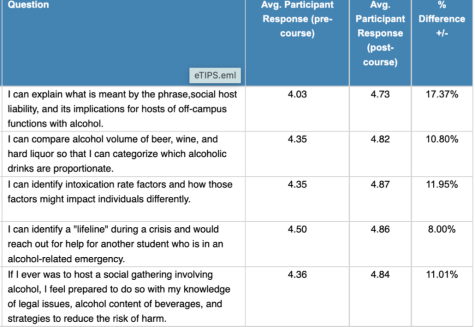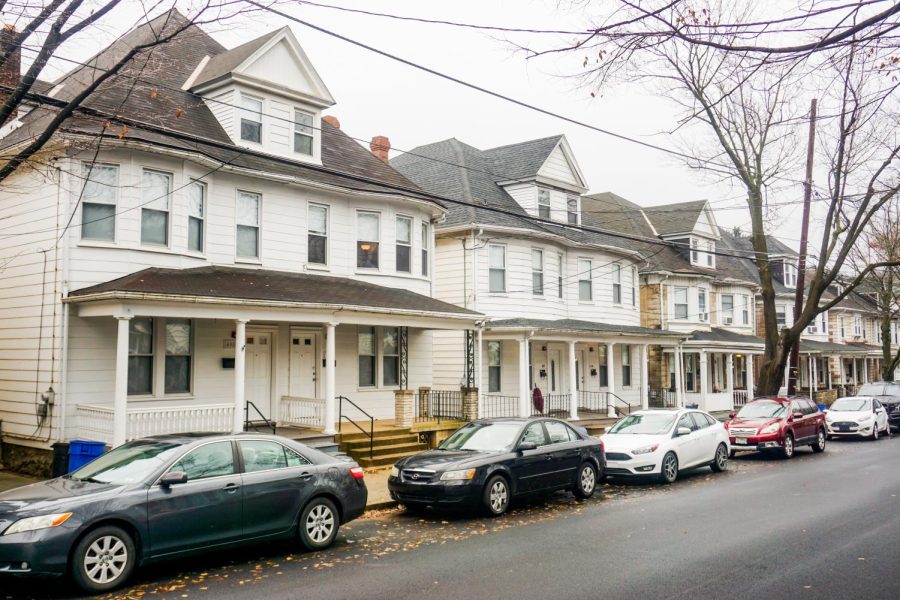It would appear that some students have failed to abide by the policy requiring that events with alcohol be registered with the college, a policy that went into effect on Oct. 1. Only 13 parties have thus far been registered.
The policy, which mandates the registration on OurCampus of events where over 20 students are present and alcohol is being served, is supported by a grant that the Pennsylvania Liquor Board awarded Lafayette last summer. The grant also allowed the school to extend eTIPS, an alcohol education program, to not only seniors living off-campus, but also to the entire junior class.
“In order to register a party, you first had to take eTIPS, an alcohol training module, but it was also focused on social host liability,” Dean of Students Brian Samble said. “So if you’re off-campus and in a private residence, and you’re holding a party, what’s the liability concern?”
Samble shared that of the 854 upperclassmen invited to take the eTIPS training, 88 percent completed the program. According to eTIPS survey results, there was a 17 percent increase in students’ ability to explain the concept of social host liability. There was also an 11 percent increase in students’ sense that if they were to host a gathering with alcohol, they would be aware of “strategies to reduce the risk of harm.”
As for events where alcohol is served, Samble said that the majority of the 13 party registrations have been from Greek organizations.
“Almost all [registrations are] from Greek life, and largely off-campus,” Samble said.
While a number of registration forms have been completed thus far, it appears that many students residing off-campus, where events with alcohol often take place, have heard little about it.
“I haven’t really heard of it being widely implemented,” Noah Wilk ’23, a resident of a privately owned off-campus house, said. “I think it’s a pretty good idea … but there’s not a whole lot of incentive to do it, especially considering that it hasn’t been done that way for a really long time.”

Other students appear unsure if registering an event with alcohol could lead to disciplinary action from the school or increased attention from Public Safety, especially given a lack of clarity about the specifics of the policy.
“It’s not very accessible,” Anna Boggess ’23, who lives in a college-owned residence on High Street, said. “I was trying to do research on the website and the rules for it.”
Boggess explained that they were mainly confused over whether or not students under the age of 21 are allowed to attend registered events where alcohol will be served, even if they are not being served themselves.
Samble said that the administration is not trying to discourage get-togethers of students of different ages.
“We don’t want to say if you’re under 21, you can’t be around people who are over 21,” he said. “We are saying that the over 21 people still shouldn’t be serving underage people.”
Boggess also said that the racial disparities in policing may also make students hesitant to register their parties.
“I feel like … [people of color] especially would be reluctant because they don’t want to be put in a situation where they put trust in P-Safe and a situation goes poorly,” they said.
For Maggie Larsen ’23, who lives in a privately-owned house on Cattell Street, the particulars of the registration policy “seem to be a bit limiting.” The registration form currently requires that students register events at least 14 days in advance.
“Maybe I have friends that don’t drink, or maybe I have 19 friends coming over or maybe I just don’t know my plans two weeks ahead for a certain date,” Larsen said. “It just seemed a bit restrictive and … not super realistic with … the way college kids plan events and get-togethers.”
To some students, however, especially those in Greek organizations, which have long been required to register events with alcohol, the new policy appears to be closely aligned with the previous status quo.
“As a Greek organization, DTD has always been required to register all our social events through the college, so the policy changed little for us,” Delta Tau Delta president Tyler Osipower ’24 said. “I understand that some students have concerns, but we never found these policies to be intrusive.”
Though there may have only been a limited number of parties registered so far, Samble is encouraged by other metrics of success, including the fact that only two alcohol-related incidents were reported on the last Lafayette-Lehigh game day and all alcohol-related hospitalizations last year were the result of Good Samaritan calls.
Going forward, Samble said that he will be working on an alcohol-education radio PSA to be aired on WJRH. He also hopes that more students will take advantage of the “party packs” of up to $200 worth of food available to students who register their events with alcohol.
Thus far, “no one has requested them,” Samble said.
























































































































